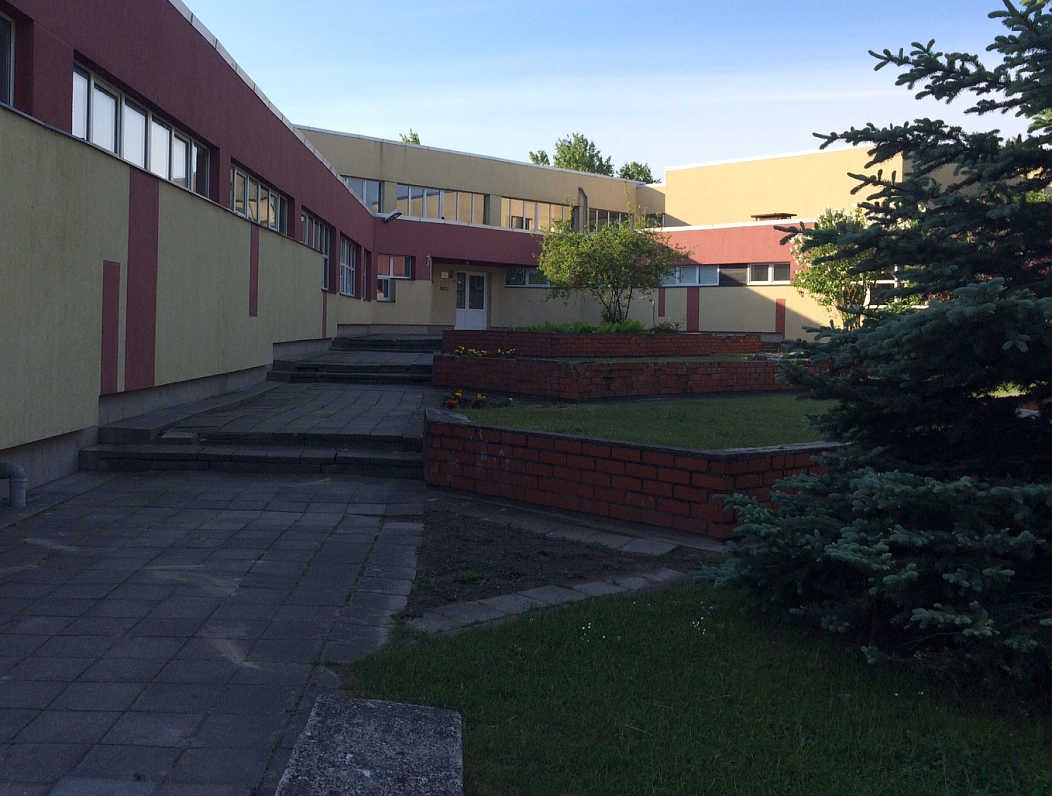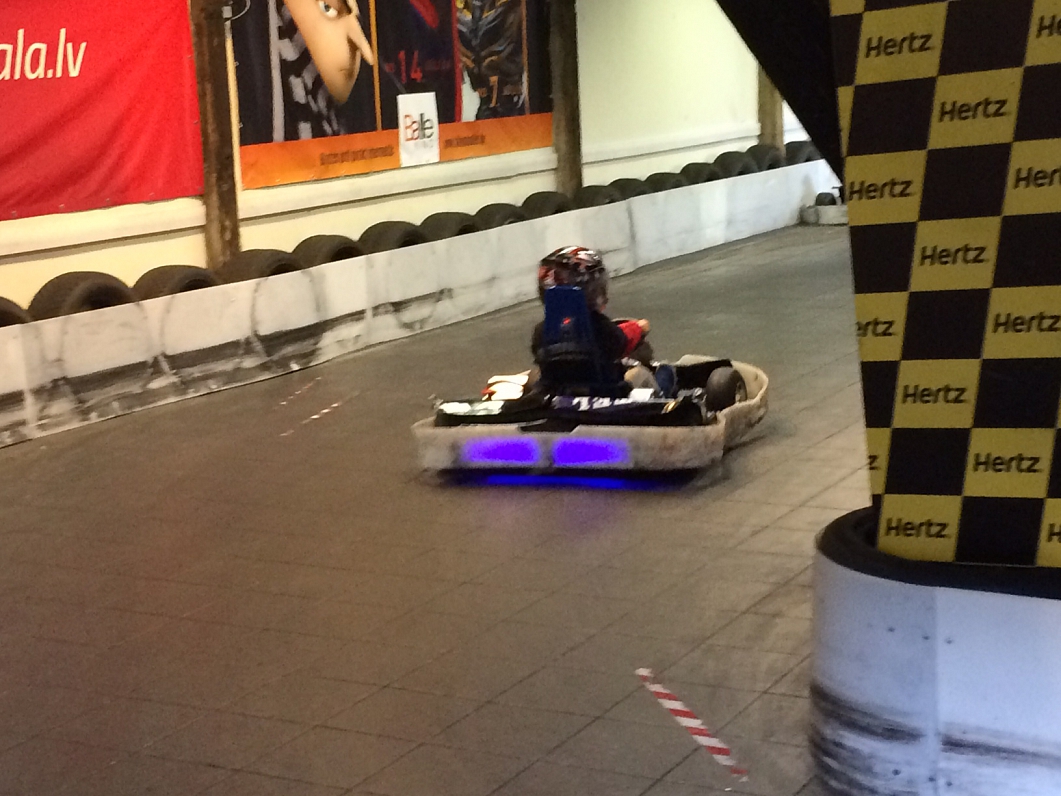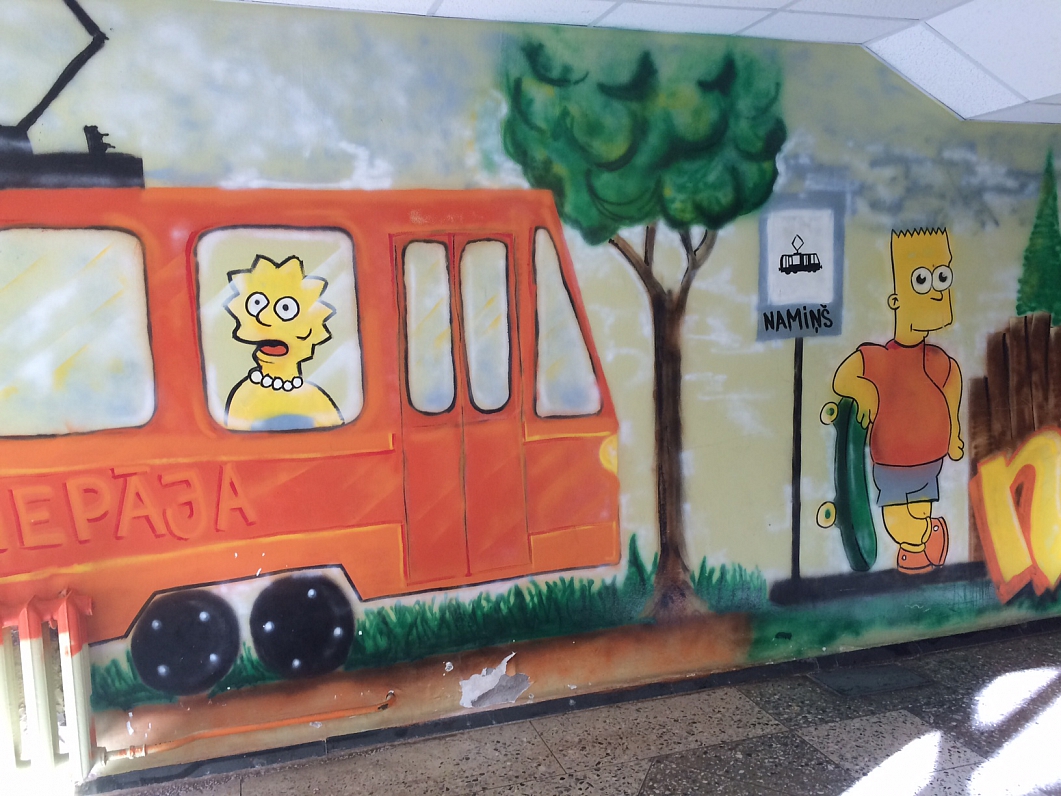A. (we agreed not to use real names) is one of the 42 children and teenagers living here, down from 70 last year. "We're glad their number is shrinking," says director Ināra Roze.
Roze is addressing a couple dozen US marines, plus Latvian soldiers and National Guard members by the front door of the orphanage, which is lined with flowerbeds and lilacs.

With the US troops having arrived here for the annual Saber Strike exercise ending late June, they'll be spending the day in groups of three or four, each marine paired with a Latvian soldier and one or two of the kids as their 'buddies'.
The plan is to have fun at a go kart venue, take a look around a naval ship in Liepāja port and visit the Great Amber concert hall and a church. This is also to help the troops get to know the country they're visiting.
Inside the orphanage, there is the sound of footsteps running down the flight of stairs, and once all the other kids have run past, there's A., skulking about the landing nervously.
His left eye is black under a black OBEY beanie which doesn't quite cover a bruise on his lower forehead. He got into a fight yesterday, A. tells the concerned director.
Before he came here, he "did his things" and had breakfast. He he hopes the day will pass quickly, he tells LSM.
A rough start
“Today you shall...” starts today’s coordinator from the US embassy. “...shoot yourselves,” one of the older boys mutters under his breath.
He too seems less than impressed with the prospect of spending a potentially tedious day in unknown company for unclear reasons.
But he is different from the others in that he's wearing Adidas sneakers whereas most of the kids, including one whose sweatpants have a motto declaring 'F*CK THE RULES', have opted for Nikes.
As everyone's waiting for the day to start, N., who is A.'s younger brother, holds a strange object in his hand.
"Do you know what this is?" he asks LSM.
"No."
"It's a fidget spinner."
"Oh."
The bus
As they introduce themselves to the soldiers, the kids receive US Marines T-shirts and are promptly loaded onto a bus. Most of them immediately don the Semper Fidelis shirts but the older kids, more wary, opt not to.
On the bus, D., a ten-year-old with brown eyes and matching hair, looks pensively into the distance.
His companions, a Latvian National Guardsman and a US marine -- there are about ten such squads mixing nationality and age -- are slowly making first contact.
The go karts
The kids, more than a dozen in total, immediately become animated as they enter Blue Shock Race, a go kart track that's also a laser tag venue and the day's first destination.
Just minutes after his morning remarks the Adidas boy is seen eagerly exchanging cultural notes with a bald-headed marine. Latvian is a very difficult language, he says, inquiring in turn about Spanish, which the marine speaks.

Meanwhile A, tension still showing on his face, has his Nike on the gas pedal and off he goes. He is driving intently but likes to slide a little when making corners. This means he loses speed and thus doesn't pose a threat to the Latvian soldier driving ahead of him in a gilded kart. But it does look cool. By the end of the race, he is almost overtaken by a US marine in the red kart.
As A. steps off the track, however, you can see that the hard edge is gone from his features, as if it had melted away during all those screeching-tire slides. There's a pervasive smell of rubber in the hall.
"When do you go to war?"
During lunch N., not without some cunning, manages to score three Fantas while his friend eagerly tells a marine that piecdesmit pieci (fifty five) is the hardest phrase in Latvian.
Afterwards it's time to go to the ship, the minelayer 'Virsaitis' (Chieftain).
On the way it's evident D.'s spirits have lifted considerably. US and Latvian grunts carry him around.
The Latvian navy gives the kids and the grunts the chance to see the ship.
"When do you go to war?" at some point asks D.
"We hope we never have to," says first Lieutenant V. Aišpurs.
"Am I the president?"
"No, you are merely in the commander's seat."
This is admittedly less intense than the go karts. While the others are busy doing a lifeline exercise, the older kids sit on the water's edge.
They discuss the price of glue (going up, apparently) like seasoned economists discussing the latest macroeconomic indicators. One of them says he's tried it but the hangover is off-putting. Maybe the conversation is intended for shock effect.
D. wasn't the only one to touch upon presidential matters today.
Public relations Marine Barnett told LSM that while he wants to become a civil journalist after serving in the marines, his life goal is that of becoming the president of the United States. He also offers his thoughts on his experiences in Latvia.
Meanwhile Sgt. Garcia (everyone is referring to one another by rank and surname) describes the day's events for LSM. He confirms that after some initial awkwardness, the kids have opened up to the US and Latvian military men, making a point of praising the Latvian soldiers for their helpful translation work.
Moving on
After an uneventful but otherwise jolly visit to the concert hall and the church, the day draws to a close.
Before we part, A. reveals he saves calendars to keep track of his days spent at the orphanage. He has spent exactly three years and nine days there so far.
He's leaving when he comes of age in nine months and plans on finding work and living on his own. But later today he's visiting his mother.
It's hard to imagine how the kids really feel, particularly when they have the normal teenage concern of seeming cool. But their perfectly natural responses and sheer joy in communication, despite barriers like language and age, suggest that tomorrow, too, might be no less well spent.
"Every day could be like this," says A., summing up the day he had once wanted to end so quickly.
ASV un @Latvijas_armija pavada aizraujošu dienu ar jauniegūtajiem draugiem no Liepājas bērnu nama. #SaberStrike17 pic.twitter.com/61YV2VgkTa
— US Embassy Riga (@USEmbassyRiga) June 9, 2017
































